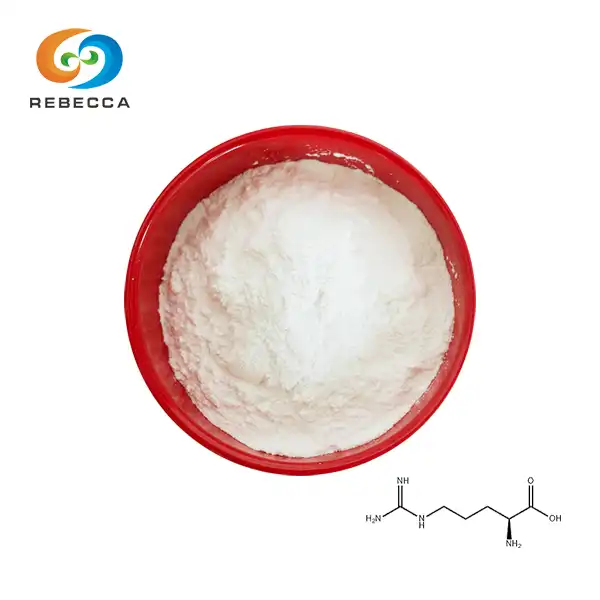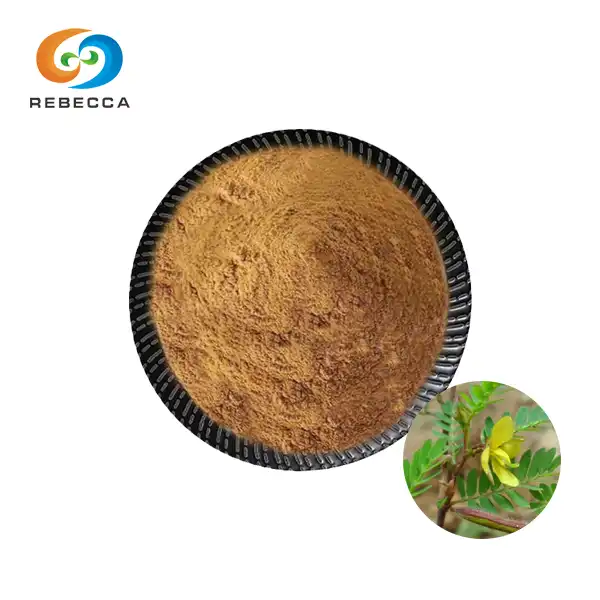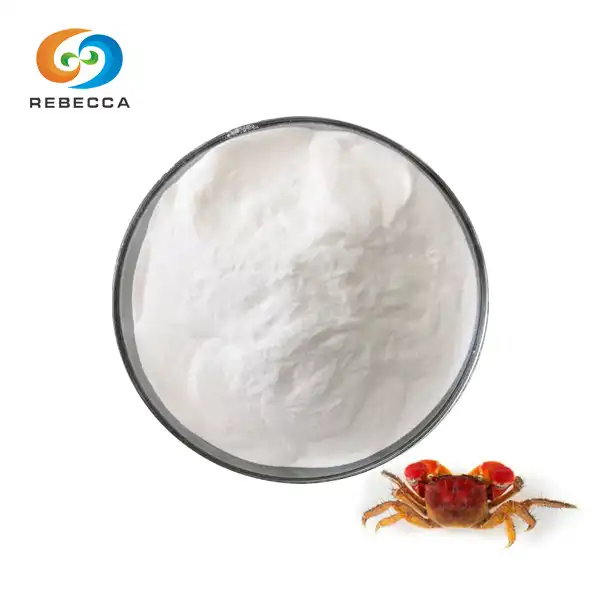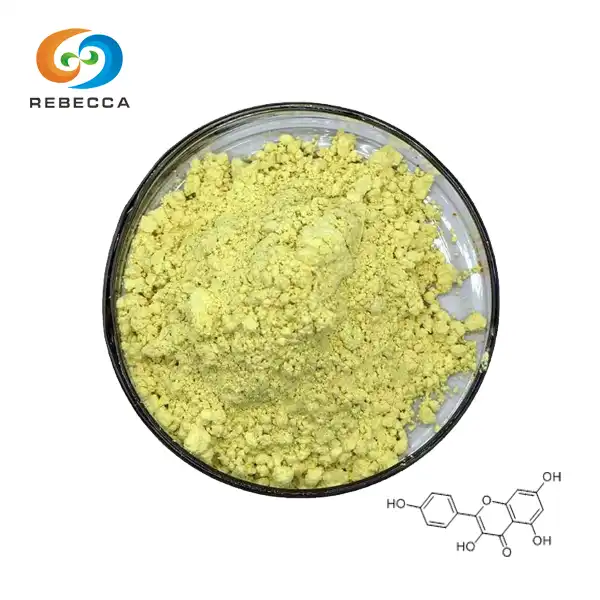What is gastrodin used for?
In the realm of characteristic herbal extracts, gastrodin has risen as a flexible and powerful compound with various potential wellbeing benefits. Inferred from the rhizome of the orchid-like herb Gastrodia elata, gastrodin powder has gathered noteworthy consideration in recent years for its wide extent of applications. This article digs into the world of gastrodin, investigating its uses, benefits, and the science behind this momentous natural extract.

The Origins and Extraction of Gastrodin
Gastrodin is essentially extracted from Gastrodia elata, a restorative herb that has been utilized in traditional Chinese pharmaceuticals for centuries. The development of this herb requires fastidious consideration of detail and particular environmental conditions. Gastrodia elata flourishes in loose, well-aerated soil rich in natural matter, with a pH level between 6.0 and 7.5. The plant's development is exceedingly subordinate to components such as light escalated, temperature, and supplement accessibility.
The extraction process of gastrodin powder involves several steps to ensure the highest quality and potency. After harvesting, the rhizomes of Gastrodia elata undergo a careful drying process, often utilizing high-temperature methods to preserve the plant's natural compounds. The dried material is then subjected to ultra-fine grinding techniques, which help retain the nutrients and natural flavors of the plant while maximizing the bioavailability of the active compounds.
The resulting gastrodin powder is a concentrated form of the herb's useful components, making it simpler to incorporate into different applications. This fastidious extraction handle guarantees that the final item maintains the keenness of the plant's common compounds while giving a helpful and productive way to tackle its health-promoting properties.

The Multifaceted Applications of Gastrodin Powder
Gastrodin powder has garnered attention for its diverse range of potential health benefits and applications. Research has shown that this natural extract may have neuroprotective, anti-inflammatory, and antioxidant properties, making it a promising candidate for various health and wellness applications.
One of the most well-studied uses of gastrodin is in supporting cognitive function and brain wellbeing. Ponders have recommended that gastrodin may help progress memory and learning capacities, possibly advertising benefits for age-related cognitive decay and neurodegenerative conditions. The neuroprotective properties of gastrodin have also been explored for their potential in overseeing conditions such as headaches and vertigo.
In addition to its cognitive benefits, gastrodin powder has shown promise in supporting cardiovascular health. Research has indicated that gastrodin may help regulate blood pressure and improve circulation, potentially reducing the risk of cardiovascular diseases. Some studies have also explored its potential in managing diabetes and metabolic disorders, suggesting that gastrodin may help regulate blood sugar levels and improve insulin sensitivity.
The anti-inflammatory and antioxidant properties of gastrodin powder have led to investigations into its potential for supporting overall health and wellness. These properties may contribute to reducing oxidative stress in the body, which is associated with various chronic diseases and the aging process. Some research has also explored the potential of gastrodin in supporting liver health and protecting against liver damage.
In the field of mental health, gastrodin has shown promise in managing anxiety and depression. Some studies have suggested that gastrodin may help regulate neurotransmitters in the brain, potentially offering a natural approach to supporting mood and emotional well-being. While more research is needed in this area, the initial findings are encouraging for those seeking alternative or complementary approaches to mental health management.

The Science Behind Gastrodin's Effectiveness
The efficacy of gastrodin powder can be attributed to its unique chemical composition and the way it interacts with various biological systems in the body. Gastrodin is a phenolic glycoside, which means it consists of a phenol molecule bound to a sugar molecule. This structure allows it to cross the blood-brain barrier easily, making it particularly effective for neurological applications.
One of the key mechanisms through which gastrodin exerts its effects is by modulating neurotransmitter activity in the brain. Research has shown that gastrodin can influence the levels of important neurotransmitters such as gamma-aminobutyric acid (GABA), dopamine, and serotonin. These neurotransmitters play crucial roles in regulating mood, cognition, and various neurological functions.
The antioxidant properties of gastrodin powder contribute significantly to its health-promoting effects. By neutralizing harmful free radicals and reducing oxidative stress, gastrodin helps protect cells from damage and supports overall cellular health. This antioxidant activity is particularly important in the context of brain health, as the brain is highly susceptible to oxidative damage.
Gastrodin's anti-inflammatory effects are another important aspect of its mechanism of action. Chronic inflammation is implicated in numerous health conditions, from cardiovascular diseases to neurodegenerative disorders. By helping to modulate the inflammatory response, gastrodin may offer protective effects against various inflammation-related health issues.
Furthermore, research has indicated that gastrodin may influence various signaling pathways in the body, including those involved in cell survival and neuroprotection. These effects may contribute to its potential in supporting brain health and protecting against neurodegenerative processes.

Conclusion
Gastrodin powder, derived from the Gastrodia elata plant, represents a promising natural extract with a wide range of potential health benefits. From supporting cognitive function and brain health to offering cardiovascular and metabolic benefits, gastrodin has attracted significant scientific interest. Its unique chemical properties and mechanisms of action make it a versatile compound with applications across various fields of health and wellness.
If you're interested in exploring high-quality gastrodin powder or other natural herbal extracts, please don't hesitate to reach out to us at information@sxrebecca.com. Our team of experts is dedicated to providing exceptional products and comprehensive information to support your health and wellness journey.
References
1. Liu, Y., Gao, J., Peng, M., Meng, H., Ma, H., Cai, P., Xu, Y., Zhao, Q., & Si, G. (2018). A Review on Central Nervous System Effects of Gastrodin. Frontiers in Pharmacology, 9, 24.
2. Kumar, H., Kim, I. S., More, S. V., Kim, B. W., & Choi, D. K. (2014). Natural product-derived pharmacological modulators of Nrf2/ARE pathway for chronic diseases. Natural Product Reports, 31(1), 109-139.
3. Chen, P. J., Liang, K. C., Lin, H. C., Hsieh, C. L., Su, K. P., Hung, M. C., & Sheen, L. Y. (2011). Gastrodin stimulates glucose uptake through activation of AMPK in L6 cells and improves glucose homeostasis in db/db mice. European Journal of Pharmacology, 671(1-3), 66-73.
4. Jang, J. H., Son, Y., Kang, S. S., Bae, C. S., Kim, J. C., Kim, S. H., Shin, T., & Moon, C. (2015). Neuropharmacological potential of Gastrodia elata Blume and its components. Evidence-Based Complementary and Alternative Medicine, 2015, 309261.
5. Zhao, X., Zou, Y., Xu, H., Fan, L., Guo, H., Li, X., Li, G., Zhang, X., & Dong, M. (2012). Gastrodin protect primary cultured rat hippocampal neurons against amyloid-beta peptide-induced neurotoxicity via ERK1/2-Nrf2 pathway. Brain Research, 1482, 13-21.
_1730691017423.webp)




















